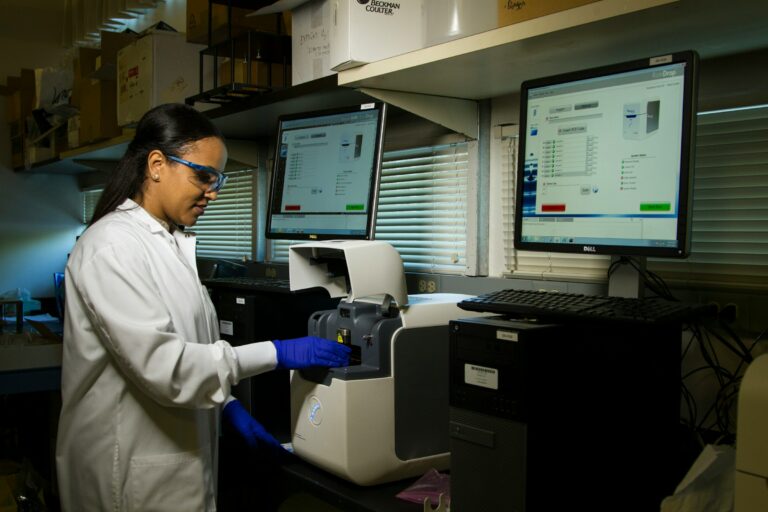
Southwark Council’s digital strategy is clear in its ambition: It is committed to building digital capability by investing in the skills of its entire workforce and building the infrastructure to support them. A corollary of that has been a fundamental change to the whole idea of technology as the sole purview of back-office IT departments.
Empowering a diverse workforce has been a central tenet of the London borough’s ethos for some time. Under the guidance of Chief Digital and Technology Officer Dionne Lowndes, achieving that goal has meant a commitment to mentoring, training, and establishing a diverse roster of role models in positions of leadership.
Southwark Council, from its CEO down, is led by inspirational women who have focused squarely on what technology should mean for the people it serves. Here, a cross-section of them tell their stories of change and challenge in their quest to ensure that Southwark Council delivers for all its residents and businesses.
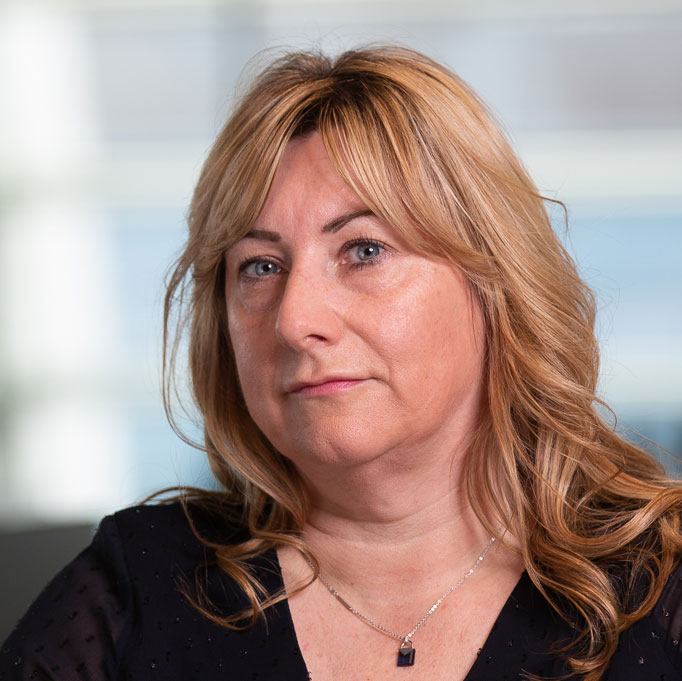
Dionne Lowndes
Chief Digital and Technology Officer

Dionne Lowndes
Chief Digital and Technology Officer
I’m acutely aware that, as the future of work changes, employment roles will be powered by technology. More than ever women cannot be left behind in that conversation, so we need to address it now.
International Women’s Day earlier this year focused on not just gender equity but also equity to women’s advancement. This was a really important message but is something we need to work towards every day. Gender inequality in the workplace takes many forms: unequal pay, disparity in promotions, racism, and often it presents itself in fewer opportunities for women.
We are a Council with a female chief executive, Althea Loderick, and that is really empowering for every other woman in the workforce. Our ‘Southwark Stands Together’ programme addresses inequalities, and we have focussed on the training and mentoring aspect to enable our workforce to develop and embrace opportunities, as well as to challenge barriers to career progression by understanding the lived experience of black, Asian and ethnic minority employees to effect positive change.
Today the opportunities to a career in technology are less prescribed; you don’t necessarily need to have a computer science degree – often the skills needed are around programme management and user experience. Technology is becoming more simplified, using low-code platforms where you can learn in a day how to build applications. Access to a career in technology is now much more open.
However, many of the challenges for women in tech and the workplace are still there. I see myself as a custodian of other’s careers and so what we have tried to create together in Southwark is a safe, collaborative environment for all of our team.
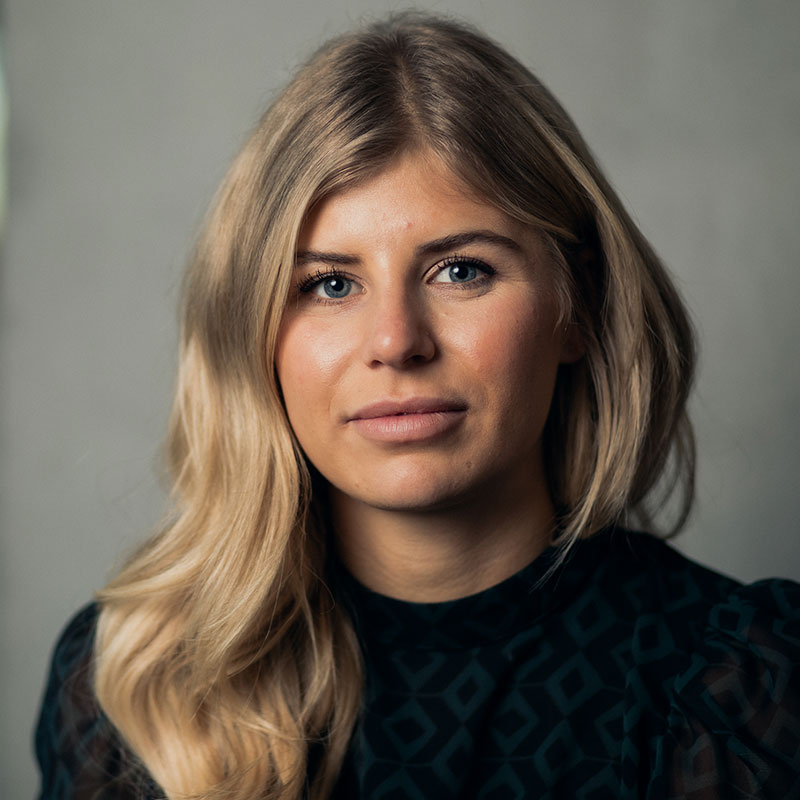
Olivia Smith
Digital Programme Lead

Olivia Smith
Digital Programme Lead
As Digital Programme Lead, a large proportion of my work is focused on how we can improve resident experience when using Southwark Council’s website. We’re working hard to make the website more user friendly; ensuring that residents can find the information and guidance they need and effectively carry out transactions online to self-serve.
I’ve never thought of myself as being a techy and never imagined I would end up in a technology role. Part of this may be down to the fact that it’s predominantly been a male-dominated industry, particularly in leadership positions, so it’s great that we have such a strong proportion of women in leading roles within the Southwark Technology and Digital team. Having women role models in leadership positions, such as our Chief Digital and Technology Officer, Dionne, as well as having female mentors support me, gave me the confidence to progress my career within this area. Without this exposure, I don’t believe I would have opened my eyes to the opportunities available.
Alongside my role as Digital Programme Lead, I also sit on the committee for the Southwark Women’s Network. We host a huge variety of events for our network, with recent events including a deep dive into autism and ADHD in women, navigating the menopause, painful periods, productivity management, and presentation skills. The list goes on! This role also gives me an opportunity to hear more from women and learn about the barriers they face within the workplace.
I hope, moving forwards, I can use this platform and my experience to help more women into technology roles. I think it’s important there’s a strong recognition that there’s so much more that women can bring to tech roles, especially when it comes to designing inclusive and empathetic services.
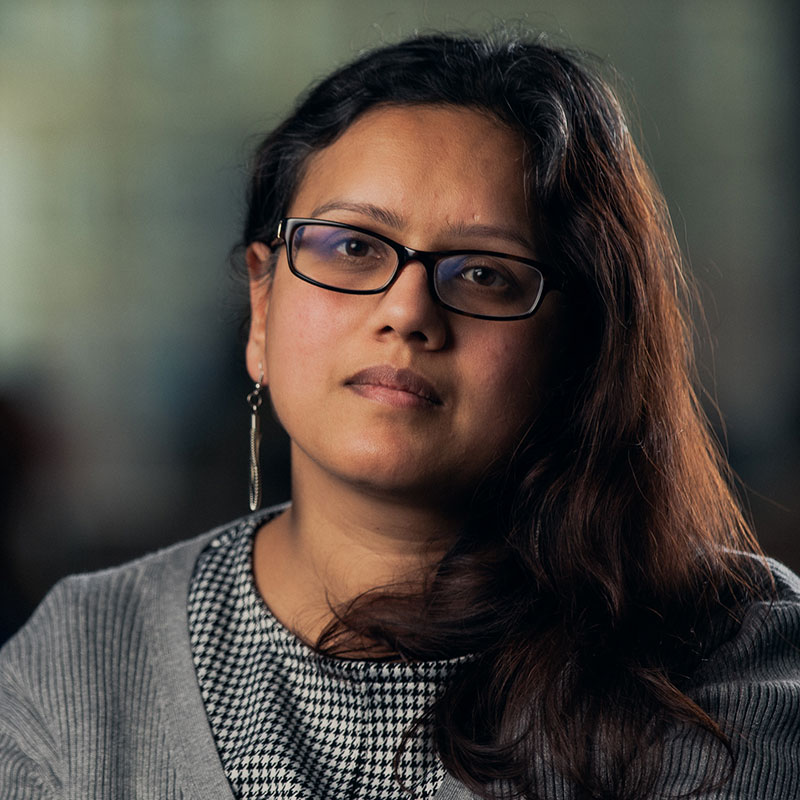
Pam Kaur
CRM Application Manager

Pam Kaur
CRM Application Manager
As the CRM application manager for Southwark, I work with a vast number of departments, supporting front-facing services. CRM brings together everything that Southwark does for its residents and manages our relationships with them through data capture. It’s a very interesting area to work in.
I’ve been in IT since the start of my education, and when I started it was predominantly male orientated, which was a bit daunting. This wasn’t an environment that women used to go into at the time, but it was a field I was interested in. I enjoyed it and I wanted to progress; I started off answering telephone calls for people who had problems with IT, then I went on to fixing them myself. When I came into Southwark, I was dealing with everything from equipment to applications – I had my hands in quite a lot of things. I went in, did the job, and learned everything I could.
I was able to do that at Southwark because it’s very diverse, very welcoming, and very people orientated. Your voice is heard – from normal employees right up to the female chief executive. There’s a great emphasis on bringing more value and empowering women in technology is a really important part of that. You feel that you can make it to the top here if you work hard.
If you think about what CRM does, which is look after the tools that have a direct impact on what the council delivers to its community, then you need a diverse team of people overseeing it. That’s the only way you get a holistic view, by having different people from different environments.
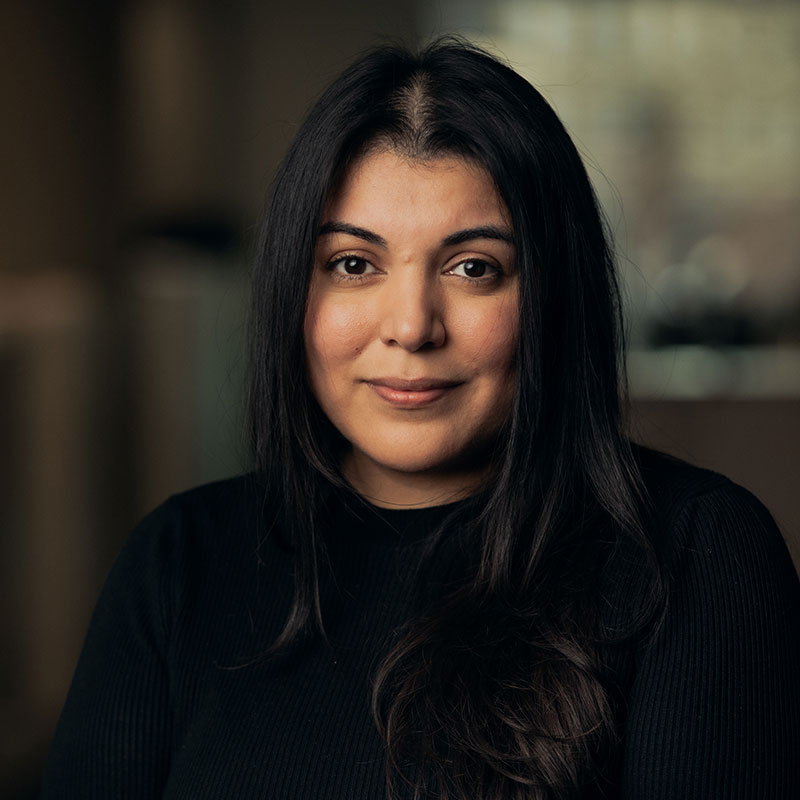
Kiran Rai
Business Relationship Manager

Kiran Rai
Business Relationship Manager
As business relationship manager I work with Southwark through a partnership called Shared Technology Services (STS), which is responsible for the councils’ technical infrastructure – everything from your Wi-Fi to how your laptop’s connecting, where your applications are hosted and data centres. The partnership works across Southwark and two other London boroughs: Lewisham and Brent.
What enticed me into IT initially was its variety, supporting people and delivering value. I get to work alongside people on all levels, engaging with stakeholders from Southwark, STS, and the other partner boroughs, supporting staff to deliver a service to the public.
We have a diverse population of people working with technologies, especially in the public sector. We have to represent the same diverse population as our communities.
And that’s why it is key to have more women in tech, to give those viewpoints and representations. As a senior woman in IT, I believe that women help to provide a more balanced view, to innovate and meet the needs of society. So if you’re trying resolve and find a solution to a problem, you have to ensure people from different genders and backgrounds understand what is required. It’s vital to have that inclusivity in the public sector.
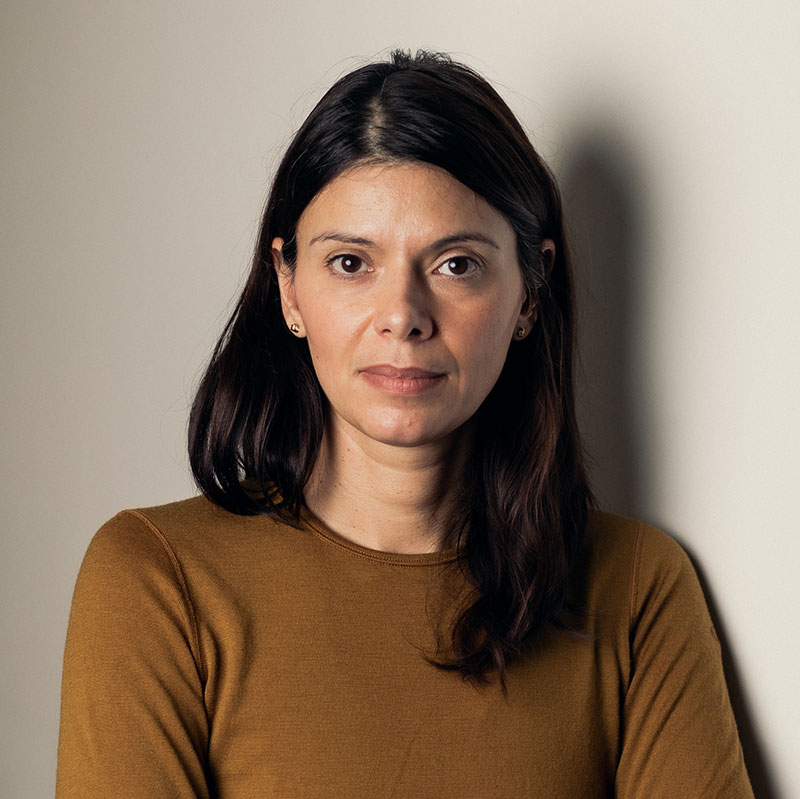
Jelena Del Bianco
Technology and Transformation Programme Lead

Jelena Del Bianco
Technology and Transformation Programme Lead
My post-graduate degree is in public policy and I have a lot of experience in local government service transformation and improvement. I love collaboration and transforming services using technology. This involves working together with services to understand their business needs and outcomes.
I have worked on creating digital services across planning, highways, housing, social care and corporate. Through my experience, I’ve learnt that the best results are achieved when we work collaboratively with our customers and partners to create modern-day services. Having progressive leadership in place is crucial for leading this type of change and empowering programme leaders to do their roles effectively.
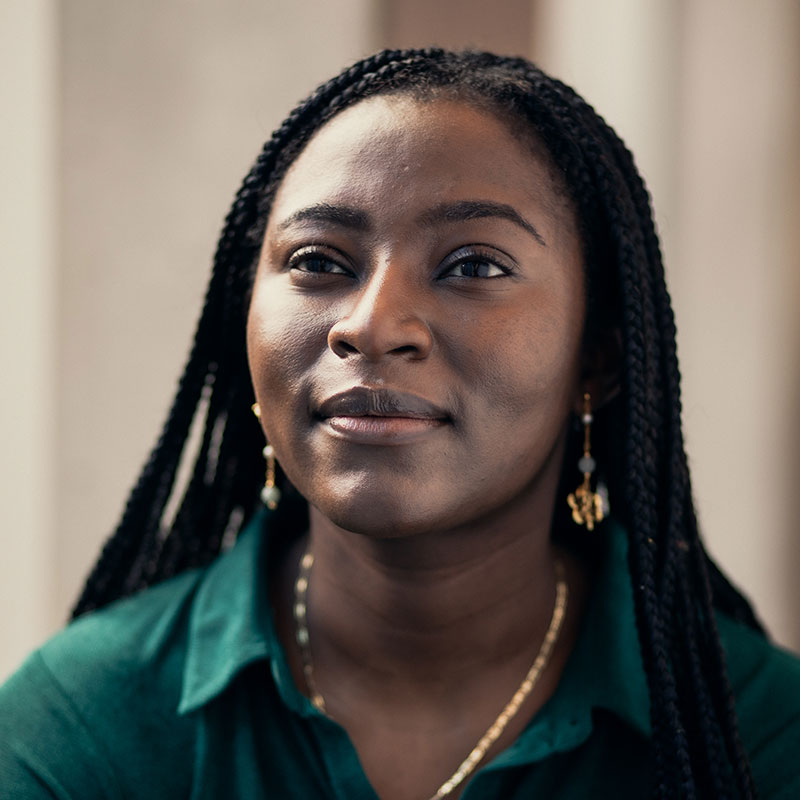
Shade Nathaniel-Ayodele
Digital Inclusion, Skills and Change Programme Lead

Shade Nathaniel-Ayodele
Digital Inclusion, Skills and Change Programme Lead
I started as a project management apprentice at Southwark, and after a few years moved up through project officer and project manager roles, before more recently becoming programme manager for the digital inclusion, skills and connectivity portfolio.
I always had an interest in technology, but just from a creative perspective – I never really considered going into a technology career. I studied Accounting & Business at university, mainly because I hoped to find a well-paying career that didn’t bring shame to my family as a Nigerian! But I realised accounting wasn’t for me as early as my first year at university and discovered other interests outside of that. In particular, I created a blog about Southwark, and another one about biscuits. That was handy in my job interview here, but it was also an example of how I saw and used technology to create digital assets.
It’s important for young people to understand that, like me, they don’t need to be a basement coder or have a technical background to understand what technology can do and to use their skills and interests with it to make a difference. They could be interested in gaming, or in fashion, arts and crafts – there’s always a way to connect your interests with technology.
Southwark is really well known for nurturing young talent and making sure they’re given as much support as possible. We have a number of coaching and mentoring opportunities, and our CEO maintains an open-door policy for people to talk to her. We have a good number of women in leadership roles within technology at the council and having them there to look up to really helps: you have to see it to be it.
Obstacles still exist. A personal one for me was being diagnosed with ADHD last year – something that made a lot of sense in hindsight; my wide variety of interests and wanting to do all of them at once, my post-it notes everywhere, and reminders pinging my phone every ten minutes, all the strategies and hacks I’ve applied in my life. And more broadly as a woman in tech, we are still sometimes underestimated – it can feel like you have to prove yourself twice as hard as anyone else. But in all respects, having a team makeup as supportive and diverse – in terms of both gender and ethnicity – as Southwark, really helps.
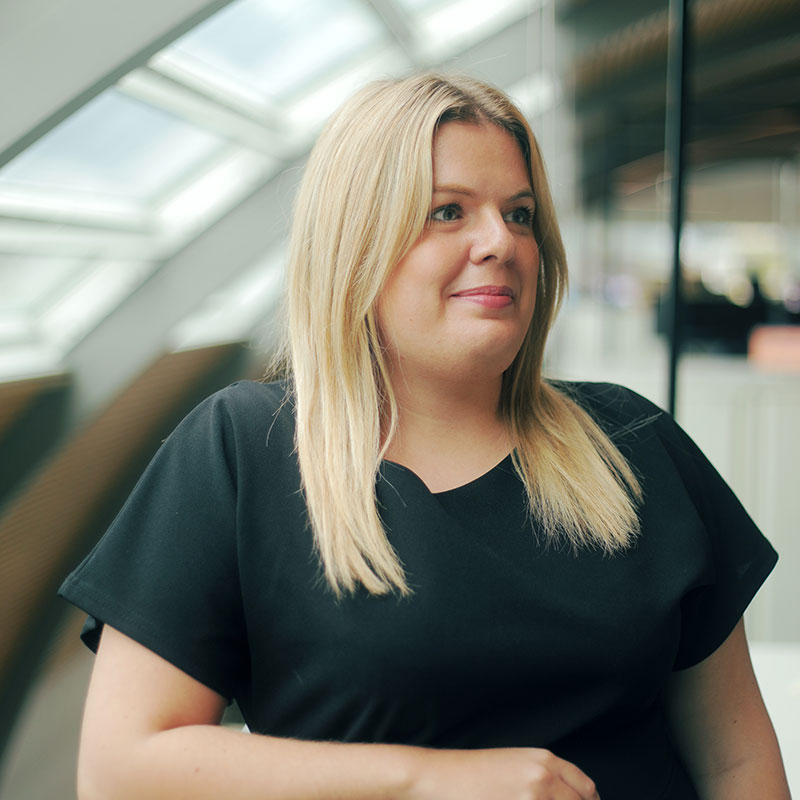
Natalie Preston
Data & Platforms, Programme Lead

Natalie Preston
Data & Platforms, Programme Lead
I work with service areas across the Council to help improve our use of data, using technology such as the council’s data platform and Power BI. This involves working with services to understand their reporting needs, the data they have available, how we can leverage technology to automate existing reporting and break down siloes in terms of how we use our data.
I joined Southwark Council as a Project Manager Apprentice in the Technology Transformation team – however, I didn’t have a technical background. I was more interested in how technology can improve services and how we support our residents. In my previous role at another local authority, I worked on a big review of how the children’s and adults social care teams used case-management systems, which sparked my passion for technology. I was involved first hand in designing how technology could save the social-care teams time and remove administrative burden, enabling them to put more of their attention and time into supporting service users.
During my early career in technology-related roles, I found the teams I was working in were predominantly male, but with some strong females in critical positions, which was always motivating to see how I could personally continue to progress. This theme has continued working in Southwark’s Technology and Digital Services, as we continue to increase the diversity and female representation in key roles across the teams.
There are still times, though, that working in technology can feel like a male dominated environment. For example, sometimes when working with third parties – even in a more senior role as Programme Lead – it can still feel a little daunting when you’re the only woman in the room. You have to remind yourself that you have a seat at the table for a reason, that your opinion matters, and get on with leading the meeting!
I believe technology roles are now less about building tech and more about implementing it; it goes hand in hand with change management. You could put the best system in place, but if half the users (be that residents or council staff) do not feel comfortable using it, and no-one understands why it’s been put in place, then it’s just a nice piece of technology. This is why it is also important to involve both sexes in design, testing, implementation.
Any woman looking for a change in career should consider technology. That’s true for all organisations, but arguably especially local authorities right now. Technology is at the centre of making better services, connecting better with our residents, businesses, and external suppliers. Technology teams are made up of all types of roles, not just purely technical ones. In our team for example, we have project managers and apprenticeships, providing opportunities for many different skill sets.
Unlike some other local government organisations, Southwark continues to place great importance on learning and development, growing and retaining its own talent, helping to create career progression pathways. That is certainly the case in our technology team. If you want to encourage more women, you need role models and mentors in every area. Having women in senior leadership roles helps to provide the motivation and enthusiasm to achieve change and progress.

